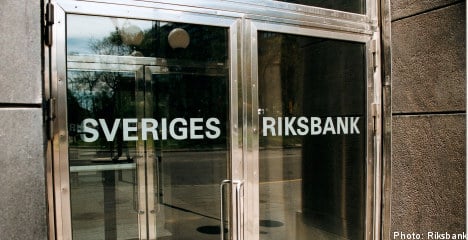The Riksbank added that it expected the repo rate to remain at its current level until the middle of next year.
While the Swedish economy has been surprisingly robust through the first half of 2012, the country’s central bank said reduced demand from the euro area is dampening exports and weakening GDP growth.
“The Riksbank noted in July that inflationary pressures in the Swedish economy were low and that monetary policy thus needed to be expansionary,” the bank said in a statement.
“Since then, the krona has appreciated faster than expected and productivity in the Swedish economy has also been unexpectedly high. All in all, this means that inflation will be lower in the coming period, compared with the assessment in July.”
In explaining the need to cut rates further, the Riksbank said it wanted to “prevent inflation from being too low in the coming period”.
The bank added it plans on raising the repo rate gradually as economic conditions improve later next year in order to help the Riksbank reach its 2 percent target level for inflation.
But uncertainly about the eurozone “could have further negative effects on the Swedish economy”, the bank warned.
“However, the Swedish economy has so far been unexpectedly resilient and confidence among Swedish households and companies may also rise faster than expected,” the Riksbank said.
TT/The Local/dl



 Please whitelist us to continue reading.
Please whitelist us to continue reading.
Member comments